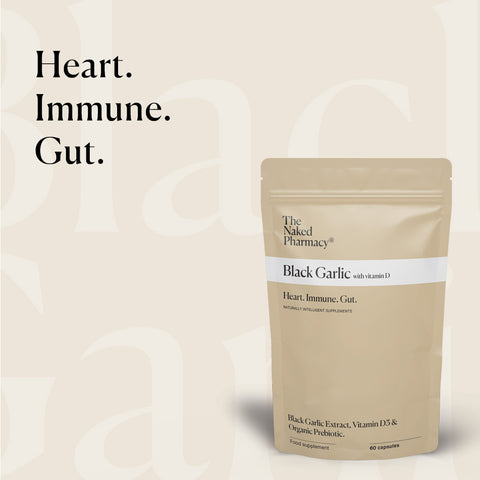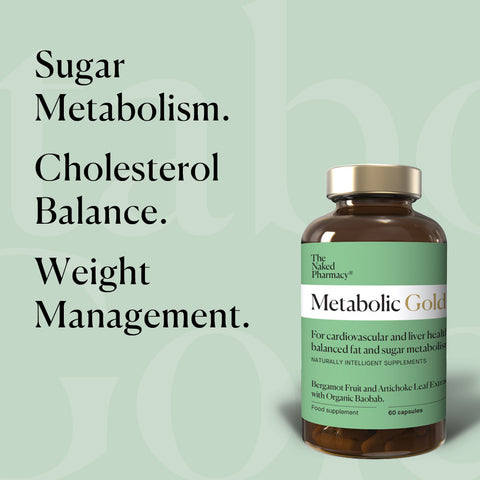Journal
Preventing heartache: sugar intake and your cardiovascular health
Many of us often find it difficult to resist the sweetness of sugar. However, it is no secret that sugar has a bad reputation when it comes to our health. While its immediate gratification is undeniable, the long-term effects of regular high sugar consumption are concerning, especially when considering our health.
Consuming too much sugar increases our risk of tooth decay, weight gain and diabetes. However, sugar is often overlooked when it comes to our heart health. It not only increases the risk of premature heart disease, heart attacks and stroke but can also reduce life expectancy.
Research consistently shows a direct correlation between excessive sugar intake and key risk factors for heart disease, including high blood pressure and abnormal cholesterol levels.
Understanding what sugar does to our bodies can help us make better choices that lead to longer, healthier lives.
Understanding Sugar
Before recognising the effects of sugar on the heart, it is essential to understand what sugar is. Sugar is a simple carbohydrate that the body uses for energy.
There are two primary types of sugar: naturally occurring sugars found in fruits, vegetables, and dairy and added sugars. Added sugars are introduced to foods during processing, cooking, or at the table.
Consuming whole foods that contain natural sugar is okay. Fruits and vegetables also have high amounts of fibre, essential minerals and antioxidants. Since our bodies digest these foods slowly, the sugar in them offers a steady supply of energy to our body.

What Are Free Sugars?
Free sugars refer to all sugars that are added to foods and drink, as well as sugars naturally present in honey, syrups and fruit juices. This term does not include sugars found naturally in fruits, vegetables and milk because these foods do not have the same negative health effects as foods and drinks with added sugars.
The NHS and other health organisations recommend limiting the intake of free sugars to reduce the risk of obesity, type 2 diabetes, heart disease, certain cancers, tooth decay, and other health issues. The NHS recommends that free sugars contribute to no more than 5% of the energy (calories) you get from food and drink each day. This is equivalent to 30g of free sugars each day (7 teaspoons).
The consumption of added sugars has been rising globally, paralleling an increase in heart disease rates. Figures show that the average adult in the UK is consuming twice the recommended amount of free sugars daily. Most of which comes from soft drinks, jam and chocolate spread, biscuits, pastries and cakes.
While sugar itself is not inherently bad, excessive intake can lead to various health issues, including heart disease.
Weight
We all know that excessive sugar intake can lead to weight gain and obesity. Obesity is a significant risk factor for heart disease.
Everyone needs some body fat to stay healthy. But too much, particularly around the waist, puts your health at risk. Visceral fat is the type of fat that sits around the organs such as our liver and heart and it is associated with increased blood pressure, high cholesterol levels, type 2 diabetes, insulin resistance and non-alcoholic fatty liver disease. All of these conditions strain the heart and can lead to cardiovascular complications.
Weight gain and obesity can be influenced by:
- Medical conditions
- Medication
- Genetic make-up
- Stress
- Lack of sleep
- Diet
Insulin Resistance
Insulin is the hormone that controls your blood sugar. Consuming large amounts of sugar can lead to insulin resistance, a condition where the body's cells become less responsive to insulin. This causes the liver to store more fat and can lead to the development of non-alcoholic fatty liver disease (NAFLD).
Type 2 Diabetes
Type 2 diabetes can cause elevated blood sugar levels as glucose accumulates in the bloodstream instead of being used for energy. Type 2 diabetes is a major risk factor for heart disease, as it accelerates the development of the condition, atherosclerosis.
Atherosclerosis is where your arteries become narrowed due to a build-up of plaque, making it difficult for blood to flow through them and increasing the risk of high blood pressure, heart attacks and stroke.
Inflammation
High sugar intake can trigger inflammation in the body. Inflammation is another key player in the development of atherosclerosis.

Cholesterol
Lipids are fat-like substances found in our blood and body tissues. Our body needs small amounts of lipids to work normally. Cholesterol is the main lipid found in our bodies and it is made up of different parts such as:
- LDL (bad) cholesterol, is the main lipid that causes damaging build-up and blockage in our arteries.
- HDL (good) cholesterol helps to remove the extra LDL cholesterol and prevent cholesterol from building up in your arteries.
- Triglyceride is another lipid that may increase your risk for heart disease.
Consuming too much sugar can lead to increased levels of LDL cholesterol and triglycerides while decreasing HDL levels. This lipid profile is associated with an elevated risk of heart disease.
Non-Alcoholic Fatty Liver Disease (NAFLD)
Sugar is broken down by the liver, where it is converted into fat through a process called lipogenesis. Excess dietary sugar can lead to an accumulation of fat in the liver cells, contributing to the development of NAFLD.
Causes Of High Blood Pressure
Although salt intake is more commonly associated with high blood pressure, chronic high sugar levels can also contribute to raised blood pressure. High sugar intake can lead to weight gain and inflammation, both of which can increase blood pressure.
Do You Know What Health Targets You Should Be Aiming For?

We often judge our health based on our weight and the numbers we see on a scale.
However, the journey to a healthier heart (and body) starts by reviewing our body composition and understanding how excessive sugar consumption can affect us on the inside and not only focus on how we look and feel on the outside.

What Is Body Mass Index?
The body mass index is a measure that uses your height and weight to calculate if your weight is healthy.
Cholesterol
LDL cholesterol used to be the main measure of harmful types of cholesterol, but we now know that other forms of non-HDL cholesterol is also bad for our health, and this is what the healthcare professionals test for.
The more one's energy comes from sugar, the higher the risk of cardiovascular disease.*
* Associations between carbohydrates and cardiovascular disease risk, Kelly et al, 2023
Heart and circulatory diseases cause a quarter of all deaths in the uk.*
Preventing High Sugar Levels: A Healthy (Heart) Choice
As highlighted above, the effects of high sugar levels can trigger high blood pressure, cholesterol, inflammation, weight gain, diabetes, and non-alcoholic fatty liver disease. All of these factors can contribute to an increased risk of heart attack and stroke.
The relationship between sugar and heart health is complex, but the evidence is clear: excessive sugar intake poses a significant risk to heart health. So, what can you do to reduce your risk factors?

Read Food Labels
Look for added sugars under names like sucrose, fructose, dextrose, and maltose. Choose products with little to no added sugars.
Limit Sugary Drinks
Sugary drinks, including soft drinks, juices, and sweetened teas, are major sources of added sugars. Opt for water, unsweetened teas, or sparkling water as healthier alternatives.
Choose Natures Sweet Treats
When you need a sweet fix, select natural sources like fruits. Fruits not only provide natural sugars but also come packed with fibre, vitamins, and minerals.

Cook At Home
Cooking at home allows you to control the amount and type of sugar in your meals. Experiment with reducing the sugar in recipes and using spices like cinnamon and vanilla to add sweetness.
Metabolic Gold
Metabolic Gold is our natural supplement formulated by expert pharmacists using high-strength bergamot fruit extract and artichoke leaf extract. These two botanical ingredients work harmoniously together to improve sugar control, balance cholesterol, support weight management and optimise liver health.
Both of these ingredients are rich in naturally occurring polyphenols that have been proven to change the way our bodies process, bind and store fats. We have also incorporated organic baobab (a natural prebiotic) to help promote gut health.
Taking one capsule twice a day with food will help to reduce your cardiovascular risk factors and support your metabolic health.
Shop Metabolic Gold Now
Call Our Pharmacist If You Have Concerns
If you have any concerns about your cardiovascular health or your health risks in general, please call our pharmacists for free advice. (+44) 01483 678 438
Dimple Varu

Dimple is a pharmacist with 12 years of experience working in retail and general practice and now specialises in providing education and advice on natural supplements.
She believes in the power of nature and using natural existing compounds to enhance our health, whether that’s treating pain or helping to prevent long term conditions. Mum of 1, living a busy life, loves reading and baking if she has the time.
Metabolic Gold for liver health
"It's estimated that up to 1 in every 3 people in the UK has early stages of Non Alcoholic Fatty Liver Disease"
SOURCE: NHSINFORM
When our fat cells can’t cope anymore with storing fat – the liver takes the burden and becomes the “overflow” storage organ for fat. This sets the stage for a vicious cycle and metabolic dysfunction.
As the fats in blood increase, gene function in the liver is inhibited causing more fat to be dumped there. At the same time, levels of leptin are increased – causing a corresponding fall in the fat-burning hormone known as adiponectin. Low adiponectin levels lead to insulin resistance in the liver – which then causes blood sugar to rise – and this sugar is then converted to more fat.
Early symptoms of NAFLD (Non Fatty Liver Disease) may be mild:
- Extreme Fatigue
- Discomfort in upper right abdomen
- Difficulty losing weight
- Weakness
Losing weight can help to slowly unclog the liver, reduce the amount of stored fat, thereby speeding up the metabolism as well as to help to reduce blood sugar, harmful LDL cholesterol and triglycerides.

Dietary suggestions to unclog the liver and support its optimal function:
- A Mediterranean diet (vegetables, fruits, antioxidant spices and herbs, whole grains, oily fish, nuts and olive oil) have been shown to benefit liver health.
Liver nourishing foods include : cruciferous veg (Brussels sprouts, cauliflower, kale, cabbage, broccoli, rocket (arugula), watercress)
Bitter foods: rocket, radicchio, dandelion greens
- Practising some intermittent fasting can also help un-clog the liver, even if you can only manage a 12 hour overnight fast, as it allows the body to rest and regenerate.
- Ensure you are eating enough protein. If you are not consuming enough protein this can impair your liver’s ability to carry out it’s detoxifying and metabolic functions.
- Drink plenty of pure water to help flush out excess toxins.



The great news is that we can support our hard working liver with specific nutrients which have been supported by scientific research:


- AGED GARLIC can help shift unwanted fat from being dumped in the liver.
- VITAMIN D deficiencies are linked to NAFLD (Non Alcohol Fatty Liver Disease) : Vitamin D deficiency leads to the release of pro-inflammatory agents that can contribute to fatty liver disease
- BERGAMOT & ARTICHOKE EXTRACTS - Bergamot fruit extract has been shown to lower blood sugar, reduce inflammation, improve blood vessel activity and artichoke boosts your production of bile.

Metabolic Gold for managing weight and sugar naturally
Introducing our new formula containing pharmaceutical strength bergamot and artichoke extracts. Metabolic Gold has been over two years in research and developement.
Bergamot may sound familiar as the peel of this unique citrus fruit is used for teas, perfumes and essential oils.
However, we only utilise the fruit sourced from trees found in the coastal areas of Calabria, Southern Italy as it's unique combination of five polyphenol bioactives reduce the levels of unhealthy fats in a similar manner to statin medications, without the side effects.
Bergamot fruit polyphenols have been scientifically proven to improve levels of good cholesterol, reduce inflammation and improve blood vessel elasticity.

Bergamot fruit extract
Bergamot polyphenols improve the way fats are processed in the liver thereby balancing cholesterol and protecting cardiovascular health.

Artichoke leaf extract
It boosts your liver’s production of bile. Bile is a natural compound that digests and uses fats so they don’t accumulate in your liver or in your body.
How do you take Metabolic Gold?
A randomized placebo-controlled study with 60 overweight adults showed that supplementing with 600mg bergamot and 100mg artichoke leaf resulted in a reduction in LDL cholesterol, significant reduction in waist circumference and visceral adipose tissue in 2 months – even in participants who did not follow a low-calorie diet.

Concerned about side effects?
The natural formulation of Metabolic Gold means that you can take it alongside most medications, however we recommend that you take a few minutes to call us, or write to us and get some friendly pharmacist advice if you have any questions about your current regime.

Kevin Leivers,
Founder of The Naked Pharmacy
Chief Pharmacist and Formulator
Body shape is not an indicator of the strength of your blood vessels
Did you know that the blood vessels in your body are nearly 60,000 miles long which is twice around the world.
Their job is to carry vital blood, oxygen and essential nutrients to every part of the body. Healthy vessels are strong, elastic, flexible and clear of any deposits.

What causes a stroke?

So what can we do to keep our blood vessels unclogged, strong and healthy?
- Follow - The principles of a Mediterranean-style diet rich in a variety of fresh fruit and vegetables, ideally 6 portions a day and include a daily portion of a vegetable rich in nitric oxide, such as beetroot, broccoli, spinach, collard greens and kale. Nitric oxide is a substance that is essential for optimal arterial health and function. Eat regularly.
- Move - Aim for 30 minutes 5 times a week. However, research is growing that 'snack size' consistent exercise is just as impactful on our bodies and our mind. Dr Chatterjee is a huge advocate for adding an exercise snack with your daily routine so add squats as the kettle is boiling, or toe raises whilst brushing your teeth 5 minutes a day is better than nothing and consistency is key.
- Stop - Smoking.
- Maintain - low LDL cholesterol by reducing your consumption of processed and deep-fried foods.
- Lose - weight carrying extra weight increases your chances of having too much LDL cholesterol in your blood, leading to fatty deposits building up in the arteries, restricting blood flow. Studies show that even losing 5% of your body weight can improve cholesterol levels.
Our Metabolic Gold, is made from Bergamot (Citrus Bergamia) only grown in Calabria in Italy and can be used to support the health of your arteries by reducing cholesterol and supporting weight management.
Studies show that bioactive compounds in Bergamot can reduce the “bad” fats, lowering LDL cholesterol, triglycerides and improving total cholesterol levels.
In fact, Research on Bergamot has been shown to have 2 specific molecules that are very similar in structure, and function to statins.
Metabolic Gold can generally be used in conjunction with prescribed cholesterol-lowering medication – speak to one of our pharmacists for more information about your health and any potential indications with current medication

Heart attack by Jeff Schmidt
It turns out that we really are ‘the sum total of our experiences.’ Had I known then the impact of many of my decisions, I may have made changes earlier, but it turns out that we must live life to truly understand it.
I was definitely living life. Perceived invincibility provided me with the tunnel vision which enabled me to dash from one task to another, ticking off one more achievement, adventure and accolade.
Of course you can’t sustain this symphonic level of intensity without topping up the tank with quick access fuel, mine came in the form of sugar- packets of delicious sweets and finely baked biscuits.
I also gradually began to neglect my regular exercise regimen in exchange for a membership in the weekend warrior club. Gut irritation and a little extra weight accumulated, but, as far as I was concerned, I felt normal for a 40-something professional.
‘That’ evening, the one that irreversibly shook up my life, Thursday 3 December, I found myself staring eternity squarely in the face. I had returned home from work with my two girls. It had been a stressful day capped by a suitably heated, hard-hitting quarrel that left me trembling.
I did not generally consider my life stressful, and yet I knew that I ran at a pretty high-octane pace. But that was OK, because, despite warnings from others, I was, or believed I was, bulletproof.
I wore my intensity like a shiny badge of honour. On that evening, however, the engine said ‘no more’; you can’t drive even the most brilliantly engineered sports cars at 5000 RPM indefinitely.
It took my mum, who spotted me bent over, clutching my chest, rubbing my arms on FaceTime and my daughter's subsequent fear-filled plea to get help for me to make the medical call. Reluctantly, in a haze of pain, I did make the call. In minutes an ambulance was there.

Pride masking the danger, I couldn’t help, but feel that all this commotion was quite unnecessary. The seasoned paramedics quickly assessed my traumatised frame, blood pressure surging through my veins like a blocked firehose. They looked me straight in the eyes, piercing my vanity, and said, “We are taking you to hospital. Now.”

‘That’ evening marked the beginning of a myriad of changes. Naturally, and most significantly was that of my health, but also, running neatly alongside, compelling me, almost without choice, was my desire to capture the goodness in life around me.
Being in hospital forced me to slow down and rest, my senses sharpened and my eyes opened to the subtleties in the world around me, to things I had not previously noticed before.
I became acutely aware of nuances in conversation, of the sacrifices of those around me and of the delicacy of relationships. I was also painfully cognizant, in increasing measure, of the compounding effects of the bad choices I had made for my body- sugar addiction, stress, exercise withdrawal and sleep deprivation.
Buckminster Fuller once said, “You never change things by fighting the existing reality. To change something, build a new model that makes the existing model obsolete.” So, that is what I did (and am doing), engineering a new, more tantalising model for life.
My diet, for instance, has been transformed. The once glutinous intake has been replaced with cleaner foods, nutrition straight from the earth and, perhaps more importantly, I expunged sweets.
Implored by the immediacy of the situation, I also instilled radical changes to my work routine and introduced regular, gentler exercises in the great outdoors. The list goes on, but I feel that, if indeed we are ‘the sum total of our experiences,’ I have been gifted a lifeline with which to significantly alter the outcome of my time here on earth. And, I must say, my heart feels good, very good indeed.

NOTE FROM THE NAKED PHARMACY
Jeff’s story highlights the importance of regular heart health checks for both men and women above the age of 30. The good news is many heart and circulatory diseases are caused by risk factors that can be controlled, treated or modified
Key risk factors as identified by The British Heart Foundation are cholesterol, diabetes, being overweight, physical inactivity, smoking and having high blood pressure. As well as a family history of heart issues
As a pharmacist, I believe that relatively simple diet and lifestyle changes can reduce the risk of heart disease
Our targeted high strength supplements can help and the general rule for these supplements is to start as early as possible to help prevent problems rather than have to treat later, especially if you recognise the risk factors
My two supplements of choice are Metabolic Gold to reduce the build-up of bad fats in the body and improve the metabolism. Research is now showing that the four specific polyphenols in high strength organic bergamot fruit extract provide effective support for managing weight and cholesterol, by binding to bad fats in the gut.
Jeff Schmidt is the Author/illustrator of the bestselling book:
HEART ATTACK- Finding hope, joy and inspiration through adversity.














